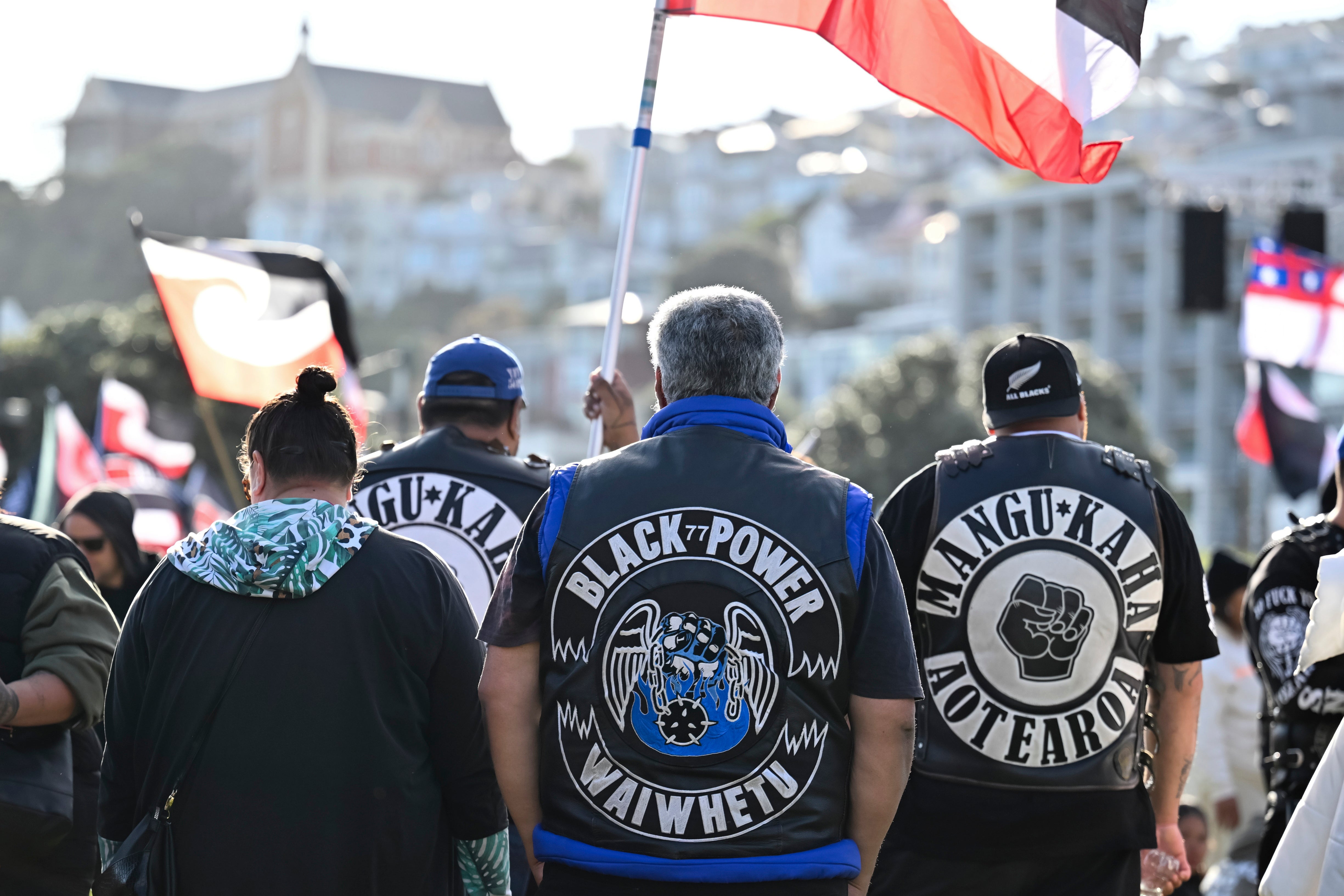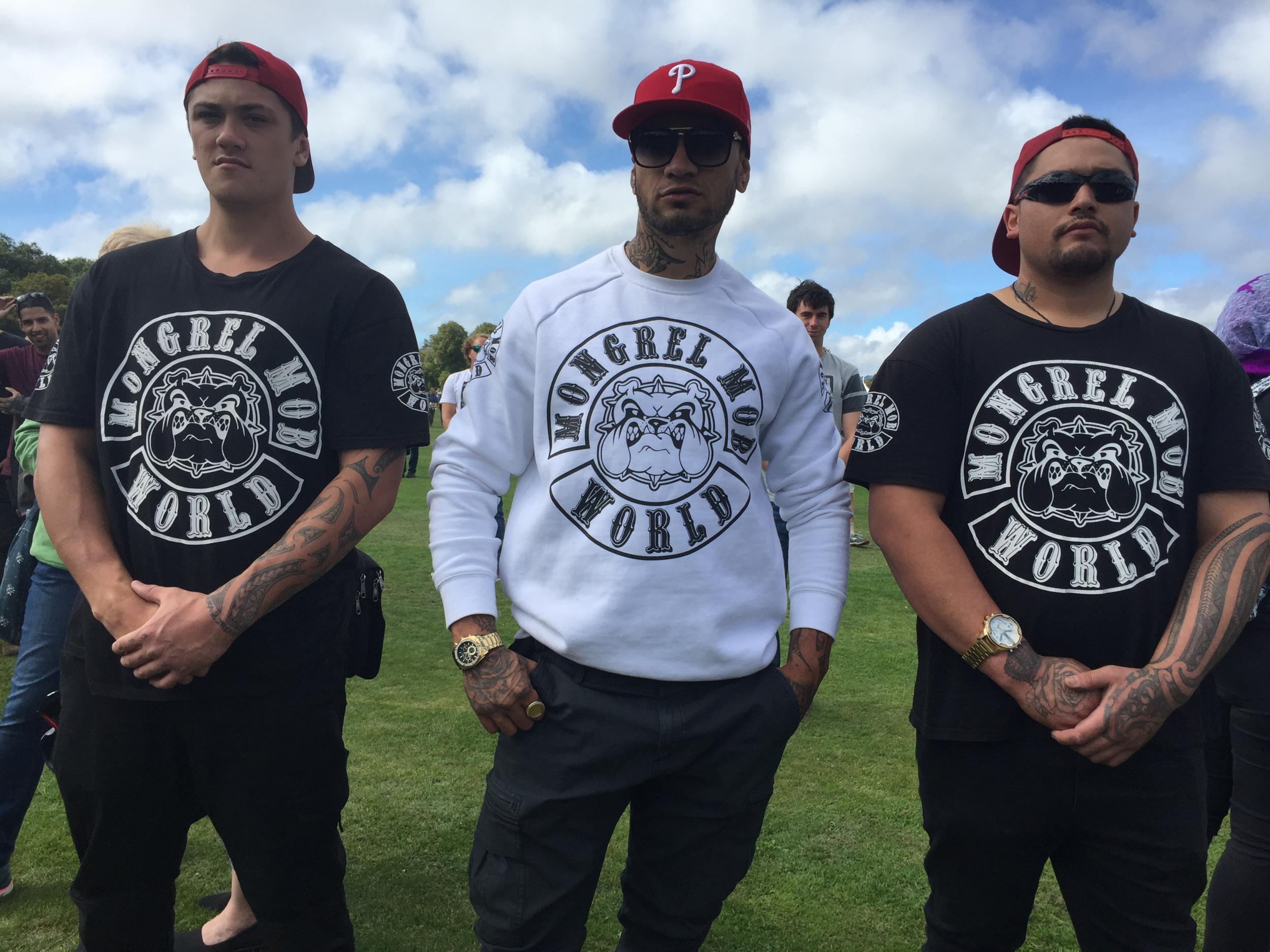First arrest made three minutes after New Zealanders banned from using gang signs
Face tattoos are exempt from the ban

A ban on New Zealanders wearing or displaying symbols of gang affiliation in public has taken effect.
Police officers made their first arrest for a breach of the law three minutes later.
The man was driving with gang insignia displayed on the dashboard of his car, Police Commissioner Richard Chambers said.
The prohibition on displaying gang insignia anywhere outside private homes, including on clothing or in vehicles, is among a suite of new measures intended to bolster police powers to disrupt the groups. Wearing or displaying the insignia of 35 listed gangs will now prompt a fine of up to 5,000 New Zealand dollars ($2,940) or up to six months in jail.
New Zealand’s center-right government, which pledged ahead of last October’s election to tackle gang crime, says the measures will reduce the membership of groups responsible for violence and drug offenses. But detractors say the law breaches civil liberties and could drive gang activities underground.
There are nearly 9,400 people on a New Zealand police list of known gang members. New Zealand’s population is 5 million.
"Gangs aren’t community groups. They’re not a Rotary club," Prime Minister Christopher Luxon wrote on social media Thursday. “They thrive on destroying the lives of other New Zealanders, whether that’s by peddling drugs or through brutal acts of violence that leave communities in fear.”

Under the new law, officers can also disperse public gatherings of three or more members, bar some gang affiliates from associating with each other, and enter homes of those who keep breaking the law to search for banned items. Gang membership will now be considered by the courts when sentencing offenders.
Police Minister Mark Mitchell told reporters on Thursday that two people were arrested hours after the law took effect for wearing gang “patches,” which are large insignia often worn by gang members on the backs of leather jackets or vests. The government says the patches are intimidating because members are required to earn them through violent acts.
The measures shift New Zealand's response to gangs closer to that of neighboring Australia, which also uses a law to suppress the public visibility of gangs, and away from jurisdictions like the U.S. and Britain, which use criminal law to respond to specific activities carried out by organized crime groups, according to a report published by Treasury officials in February.
Facial tattoos that display gang insignia are exempt from the ban, as is the wearing of gang colors. The government was criticized by some for not including white supremacist groups in its list of 35 organizations targeted by the new law. That means displaying swastikas and making Nazi salutes remains legal in New Zealand -– unlike in Australia, which banned both in a law that took effect January.
Successive governments have vowed to tackle criminal gangs, which often are linked to poverty and other deprivation. The previous center-left government was decried by Luxon’s administration for working with gangs on social initiatives, including COVID-19 vaccination efforts, while the current government has been denounced for advancing policies that are likely to ensnare some of New Zealand’s most marginalized groups, including Indigenous Māori.
Official reports say three-quarters of those on the national gang list are Māori, who make up less than 20% of New Zealanders, and that 80% to 90% of those in two of the most notorious gangs are former wards of the state.
Bookmark popover
Removed from bookmarks